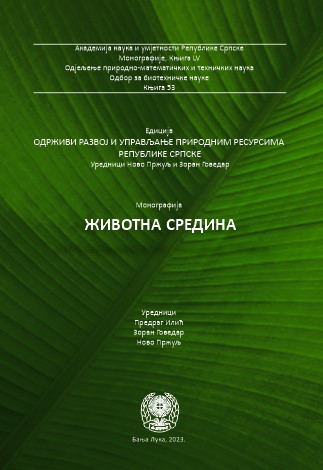Restoration and Preservation of Degraded Soils for Crop Production
DOI:
https://doi.org/10.7251/EORU2309243FKeywords:
Soil quality, soil fertility, crop production, organic amendments, food securityAbstract
A broad range of ecological issues may be traced back to agricultural soil management methods that have a significant influence on ecosystems health across the globe. Agriculture has a major influence on the environment via soil quality deterioration or degradation. There are several types i.e., salinity, erosion, water logging and soil pollution with organic and inorganic contaminants and contributing factors to soil degradation. The inclusion of sustainable development goals (SDGs) related to the soil use as zero hunger (SDG 2), decent work and economic growth (SDG 8), climate action (SDG 13), life on land (SDG 15) contributes and important in human wellbeing via producing food crops (SDG 2), increasing economic growth (SDG 8), sequestering atmospheric emissions for climate change mitigation (SDG 13), and betterment of life on earth (SDG 13). Factors include non-suitable agricultural practices, usage of wide fields without limits to impede water flow, and improper ploughing techniques. The key element to limit the soil degradation is reducing pressure on natural resources and their over-exploitation. In this chapter, authors have discussed the soil degradation, causes and their remedies in detail.
